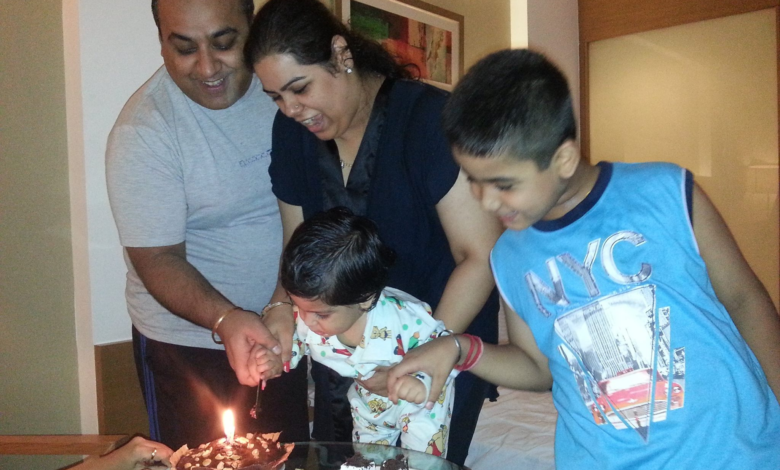Why I Entered the Events Industry—and What I’ve Learned So Far

A New Chapter in a Multi-Faceted Career
Over the years, my professional journey has taken many turns—from IT and education consulting to immigration services and real estate advisory. But one of the more unexpected and rewarding paths I’ve explored in recent years is the events industry.
I’m Amit Kakkar, and today, I proudly call myself not only a consultant but also an event strategist. While this industry wasn’t originally part of my plan, my decision to enter it has added a new and fulfilling dimension to my work. In this article, I’ll share why I stepped into events, the lessons I’ve learned, and the value it brings to my clients and community.
Why Events?
The idea to venture into the events industry wasn’t sudden. It developed gradually as I began helping clients organize educational seminars, travel expos, student orientation events, and even networking meetups for real estate and healthcare professionals.
Each time I assisted in planning and coordinating, I noticed how natural it felt to me. My background in consulting had already trained me in logistics, people management, planning, and attention to detail—all essential skills in event management.
Moreover, I was deeply inspired by the impact these events had on participants. Whether it was helping students gain information or giving professionals a platform to connect, the value was visible and immediate.
Starting Out in the Industry
I began small—supporting events related to the fields I was already involved in, like education, immigration, and real estate. My goal was to add value by ensuring that events were purpose-driven, not just well-organized.
Rather than aiming to be an event planner in the traditional sense, I positioned myself as a consultant who creates meaningful experiences. This approach helped me build credibility quickly and form strong connections with both clients and vendors.
Key Areas of Event Work
1. Educational Events
Given my long-standing background in guiding students, I’ve organized workshops, webinars, and expos where students can meet representatives from international universities. These events have helped hundreds of students and parents make more informed decisions about studying abroad.
2. Professional Networking Events
In industries like real estate and healthcare, building connections is essential. I’ve helped professionals come together through roundtables, panel discussions, and mixers, creating a platform for learning, collaboration, and opportunity.
3. Social and Charity Events
As part of my NGO’s outreach work, I’ve also organized medical camps, awareness drives, and educational outreach programs. These events may not be profit-driven, but they’ve been deeply fulfilling and impactful—reaching thousands across different communities.
What I’ve Learned So Far
Events Are About Emotions
One of the biggest lessons I’ve learned is that successful events are built around emotions and experiences. It’s not just about the agenda or venue—it’s about how people feel when they walk in, participate, and leave.
Whether it’s excitement, inspiration, or a sense of connection, understanding the emotional side of events has helped me create more memorable and effective gatherings.
Planning Is Everything
In consulting, planning is critical—but in events, it’s everything. A single overlooked detail can disrupt the entire flow. I’ve learned to work with detailed checklists, timelines, and backup plans to ensure nothing is left to chance.
This discipline has improved not just my event work, but also my approach to every other service I offer.
People Skills Matter Most
Events are all about people—clients, guests, vendors, and partners. Having strong communication skills, being able to stay calm under pressure, and knowing how to solve problems on the spot are what truly make an event successful.
Technology Is a Game Changer
From online ticketing platforms to live-streaming solutions, tech has changed the way events are run. I’ve embraced digital tools to improve efficiency, expand reach, and ensure smoother execution—especially in the wake of the pandemic, when virtual and hybrid events became the norm.
The Challenges of the Events Industry
Of course, the events industry comes with its own set of challenges:
- Tight timelines
- Budget constraints
- Unpredictable guest behavior
- Last-minute changes
But I see these as opportunities to sharpen my problem-solving skills. Each challenge has taught me how to stay flexible, creative, and calm in high-pressure situations.
The Value for Clients
When clients work with me for events, they’re not just getting a planner—they’re getting someone who understands the strategy behind the experience. My consulting background allows me to:
- Align events with business or social goals
- Maximize value within the available budget
- Provide post-event analysis and improvement suggestions
Whether it’s a university fair or a real estate seminar, I focus on delivering results that go beyond just the day of the event.
Looking Ahead
I plan to continue growing this part of my professional portfolio. With every event, I refine my methods, expand my network, and deepen my understanding of what makes a gathering successful. I also aim to combine my event work with my social initiatives, creating more opportunities for awareness, education, and positive change.
As Amit Kakkar, I see the events industry not just as a business but as a platform for impact. It’s a space where ideas come to life, people come together, and change begins.
Final Thoughts
Entering the events industry has been one of the most refreshing chapters of my career. It has allowed me to blend creativity with structure, connect with people in new ways, and deliver tangible experiences that leave a lasting impression.
Whether I’m hosting a student seminar or a social cause campaign, my goal remains the same: to bring people together in meaningful ways. And that, more than anything, is what keeps me passionate about this work.





